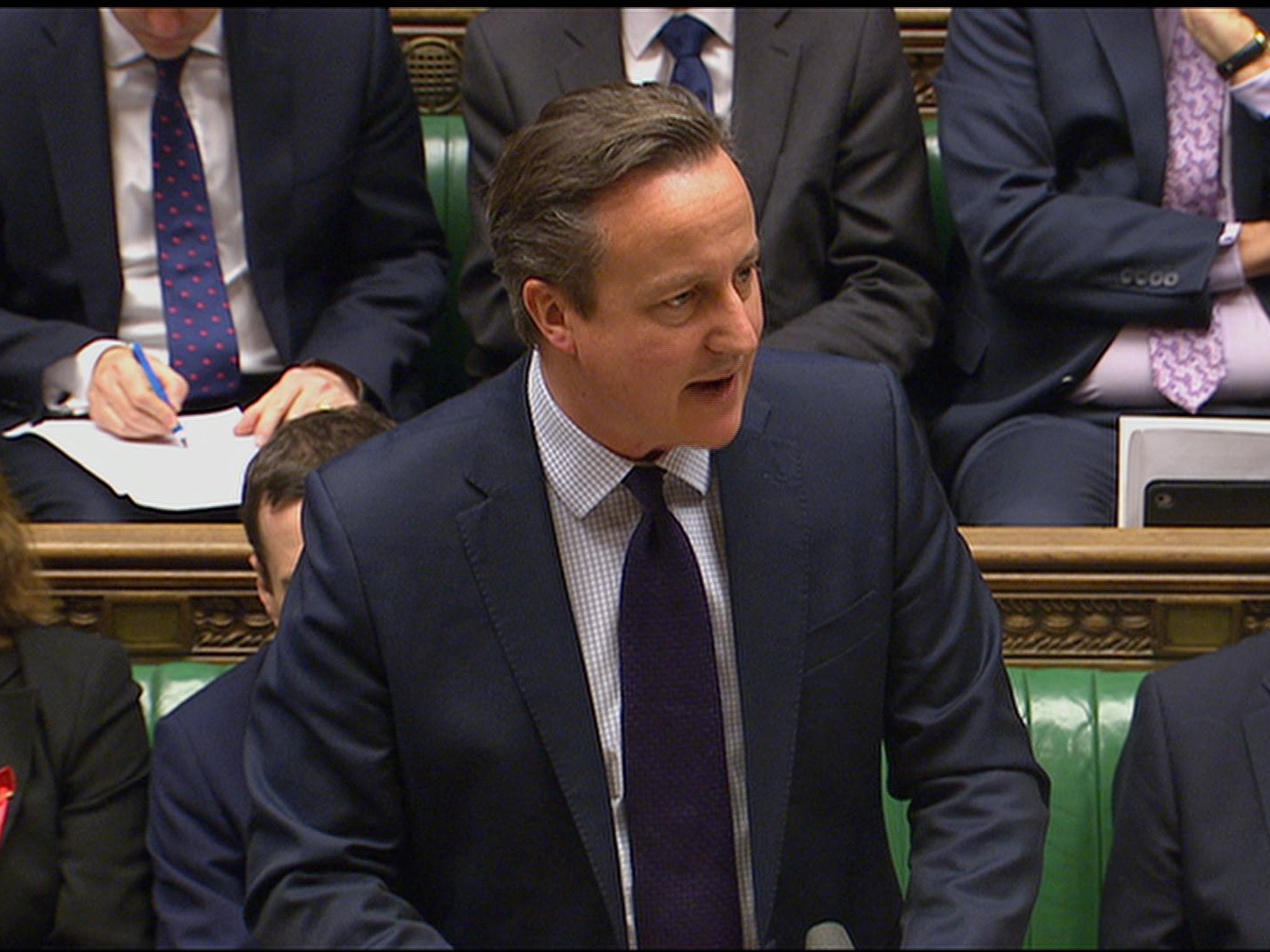Air strikes on Isis in Syria: How David Cameron set out his case for war
The questions posed to the Prime Minister by the Foreign Affairs Select Committee and Mr Cameron’s answers

Your support helps us to tell the story
From reproductive rights to climate change to Big Tech, The Independent is on the ground when the story is developing. Whether it's investigating the financials of Elon Musk's pro-Trump PAC or producing our latest documentary, 'The A Word', which shines a light on the American women fighting for reproductive rights, we know how important it is to parse out the facts from the messaging.
At such a critical moment in US history, we need reporters on the ground. Your donation allows us to keep sending journalists to speak to both sides of the story.
The Independent is trusted by Americans across the entire political spectrum. And unlike many other quality news outlets, we choose not to lock Americans out of our reporting and analysis with paywalls. We believe quality journalism should be available to everyone, paid for by those who can afford it.
Your support makes all the difference.How would UK involvement in airstrikes improve the prospects for defeating Isis?
David Cameron claimed that Britain had military assets that would make Coalition airstrikes more effective including a precision missile system which reduced collateral damage allowing more Isis sites to be targeted within civilian areas. He added that attacking Isis in its self-proclaimed capital of Raqqa was a key to disrupting and dismantling its ability to launch attacks in the Middle East and further afield and that Britain would have a “distinct role” targeting the upper tiers of the Isis leadership and attacking the group’s supply routes.
Would airstrikes be legal?
The Government claims there is a clear legal framework for action both on the grounds of self-defence and the defence of friends and allies – in this case France and Iraq. In addition Mr Cameron cited the recent UN resolution that called on member states to take “all necessary measures” to “eradicate” Isis in Syria.
Where are the ground troops to take and hold the territory currently under Isis control if we attack it from the air?
David Cameron said the UK’s intelligence assessment was that there were 70,000 opposition fighters in Syria who do not belong to extremist groups. These include Syrian Kurds, moderate Sunni groups in the North of the country and the Syrian Free Army mainly fighting Assad forces in the South. He suggested that these groups could capitalise on Isis’ weakened position to make territorial gains. However some experts are sceptical about this figure questioning how it is possible to accurately assess given the situation on the ground and whether such groups were in strategic position to capitalise.
What is the overall objective of the campaign?
In the short term the Government says the plan is to degrade Isis’s capacity so that it can no longer present a significant terrorist threat to the UK or an “existential” threat to Iraq and Syria. In the longer term ministers claim this will make it easier to broker a ceasefire between moderate opposition forces and the Assad regime along with peace talks and a new transitional Government in Damascus that has broad support from the opposing group in the country. This new Government would then be in a position – with Western support – to retake all the territory held by Isis and dismantle the organisation. Mr Cameron claimed that Iranian and Russia involvement in tentative peace talks made such a resolution more likely.
How would airstrikes contribute to the wider piece in Syria and what plan is there for re-construction?
Mr Cameron committed Britain to spending over £1 billion in reconstruction funds if a peace deal could be put together and a new Syrian Government formed. He made clear that while Assad could not be a part of this new regime his army would not be dismantled and many parts of the state apparatus would remain unchanged. He promised not to make the same mistake as after the Iraq war when the Americans disbanded the Iraqi army fuelling instability in the country. The Prime Minister also claimed that degrading Isis would strengthen moderate opposition forces against President Assad and increase the likelihood of an orderly political transition in Syria.
Join our commenting forum
Join thought-provoking conversations, follow other Independent readers and see their replies
Comments